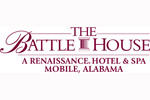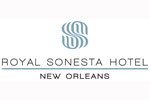|
1.Do you believe the luxury trend will continue for greater than 18 months for our corporate clients? Lana Yoshii: No. The Luxury segment will continue to suffer as they absorb the new luxury hotel supply, and if their recent behavior continues, they will discount to attempt to induce demand for corporate clients and groups. When demand levels noticeably start increasing, luxury hotels will start to aggressively raise rates. 2. How does room occupancy affect the cost of a meeting/event even if the event does not use any rooms? Robert Mandelbaum: It is more profitable for hotels to rent guest rooms than meeting rooms. Therefore, hotels will hold their meeting/banquet inventory as long as possible for groups that will utilize both guest rooms and public space. It can be assumed that higher occupancy means a hotel is able to book groups requiring meeting space, thus making it difficult for local groups to book public space. (www.meetgreen.com/tools/toolbox). 3. What's driving the luxury and upscale uptick? Mandelbaum: Historically, the luxury segment has experienced some of the greatest percentage declines in performance during recessions. However, loyal luxury guests have returned back to the high-end hotels as soon as the economics have permitted. During this recovery, PKF-HR believes luxury guests will begin to return in 2010, but discounting will be necessary. The upscale segment is populated by some of the most popular select-service, boutique and extended-stay brands. New hotel openings, plus consumer acceptance, will drive demand growth in this segment. 4. Why do you see Sacramento going negative on demand when none of the state government employees can travel and therefore we as planners have to bring our meetings to Sacramento? Mandelbaum: PKF-HR’s econometric forecasts are driven by economic forecasts provided by Moody’s Economy.com. Moody’s is currently forecasting a 2 percent decline in employment and a 3 percent decline in real personal income in Sacramento for 2010. The continued deterioration of the local economy is forecast to perpetuate the decline in lodging demand. The magnitude of the decline is expected to diminish from 10 percent in 2009 to roughly 1.2 percent in 2010. 5. How can a planner leverage a hotel's situation to benefit them (free nights, free cocktail receptions, etc.)? Yoshii: Hotel sales teams typically have incentives based primarily on hotel room night sales. The best leverage a planner can do for the best total “deal” is to ask for concessions on non-hotel room night sales (e.g., food and beverage, golf rounds). 6. I know you probably don't work much with international markets, but how do you see the U.S. market's performance compared to international markets, specifically Japan? Yoshii: Based on STR Global data, overall international performance has obviously been affected by the US economy, and has been declining. Japan’s decline in demand is the same as the U.S., however, they’ve only experienced less than a 1 percent increase in supply versus the U.S. (3.2 percent supply growth). Japan’s ADR’s have also been decreasing, but at a lesser degree than the U.S. (6.4 percent decline versus 9.0 percent decline). 7. Comparing resorts to traditional hotels, are the numbers similar? Yoshii: As expected resort properties are experiencing harsher losses in both occupancies and ADR versus all other hotels in the U.S. Year to date, resorts are 10.3 percent down in occupancy, versus the rest of the U.S. at 8.8 percent down. Resort ADRs are down 11.2 percent, while all other U.S. hotels are down 8.8 percent. 8. Are old school sales calls (personal visits) worth the expenses for meeting planners? Yoshii: With expenses so tightly controlled at the property level, hotel sales staffs are probably not traveling as often or as far to make sales calls to meeting planners. Without much indication that future, potential bookings are picking up for their respective markets, it has become more difficult for sales teams to justify the expense of making those sales calls to meeting planners. 9. Are more planners considering using collegiate venues because of their value? Mandelbaum: High-end, IACC-certified, on-campus conference centers appear to have been hurt by the recession just like other hotels. However, we have heard that some SMERF groups are attracted to college campuses that offer cheaper, dorm-style accommodations. 10. If an establishment is actually willing to book in advance for 2011, is it beneficial for me as a meeting planner to book now so that I can ensure a cheaper rate? Or should I wait to see what happens next year? Mandelbaum: It is my personal belief that hotel sales managers react to current market conditions. They will negotiate the most during recessions despite the fact that they are booking business for several years out. Since market conditions are most likely going to improve in 2010 and hotel sales managers might begin to feel more confident, I recommend booking now. |
Sponsored by: |









